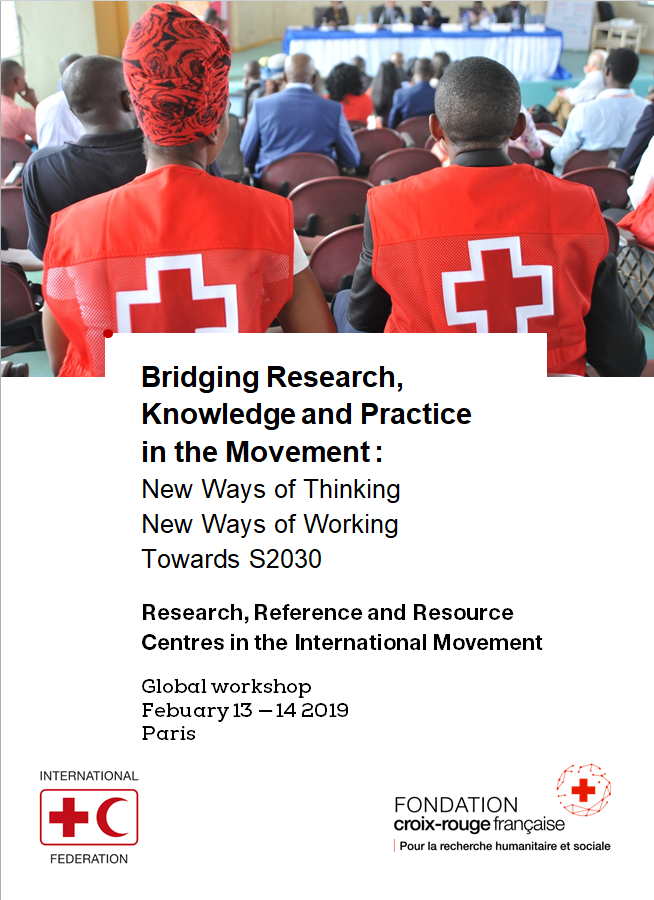The French Red Cross Foundation organized on 13 and 14 February 2019 in Paris an international workshop in coordination with the International Federation of Red Cross and Red Crescent Societies (IFRC) on the role of research and expertise within the Red Cross Red Crescent Movement, to adapt the practices and modalities of a changing social and humanitarian action.
An exceptional mobilization
The exceptional mobilization around this workshop confirmed the Movement’s tendency to give more and more space and resources to research initiatives and revealed its great diversity in thematic, geographical, methodological and legal terms. (associations, foundations, academies, etc.) More than 20 representatives from 13 centres of reference, resources and research from the Movement and from 4 continents, met for the first time for this meeting which mobilized the IFRC as the International Committee of the Red Cross (ICRC). The 13 centres together now have around 200 employees.

Planning the missions of the centres ahead for Strategy 2030
Moderated by Margarita Griffith, Coordinator of the IFRC Policy, Strategy and Knowledge Department and three members of the Foundation, Virginie Troit, Director, Malika Aït-Mohammed Parent, Member of the Scientific Council, and Vincent Léger, Research Officer, both days of the workshop aimed to project the missions and models of the centres to support the IFRC and the National Societies in the framework of the 2030 Strategy, on areas as varied as health, climate change, first aid, evidence-based research, blood donation or risk and disaster management.
, on areas as varied as health, climate change, first aid, evidence-based research, blood donation or risk and disaster management.
Better connecting research and practices
Noting that more than half of the centres represented were created less than 10 years ago, a strong trend towards the development of research entities within the Movement is unveiling, a richness still unknown because it is not very visible yet in the Movement and in the sector. The objective of better presenting the scientific offer of the centres, of better connecting it to practices and change, encourages all the centres to set up the most useful networks and connections while contributing to the development of the research culture within the Movement, what remains a big collective challenge.
“ It takes a long time to show the relevance of science to operational teams. However, once this is done, there is a real demand from operational teams”
Dr. Halima Saado Abdillahi (PhD)
Head of Research and Learning
International Centre for Humanitarian Affairs (ICHA)
Kenya Red Cross Society





